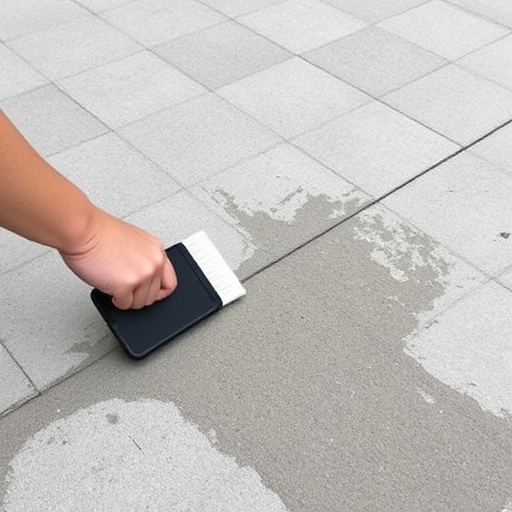How to Get Paint Off Concrete: A Comprehensive Guide
Concrete surfaces, whether they are driveways, patios, or floors, can be a canvas for paint spills, drips, or intentional painting. Removing paint from concrete can seem daunting, but with the right methods and tools, it becomes a manageable task. This guide will walk you through various techniques, tips, and best practices to effectively remove paint from concrete surfaces.
Understanding the Types of Paint
Before you begin the removal process, it’s essential to identify the type of paint you are dealing with. The most common types of paint include:
- Latex Paint: Water-based, easy to clean up with soap and water when wet, but can be challenging once dried.
- Oil-Based Paint: Requires solvents for removal and can penetrate deeper into concrete.
- Epoxy Paint: More durable, often used for garage floors, and is the most challenging to remove.
- Protective Gear: Gloves, goggles, and a mask
- Scraper or Putty Knife: For scraping off paint
- Wire Brush: To help lift paint from the surface
- Paint Thinner or Solvent: Depending on the type of paint
- Pressure Washer: For large areas
- Mop or Rags: For cleaning up
- Plastic Sheeting: To protect surrounding areas
- Paint Stripper: If necessary
- Bucket of Water: For rinsing
- Work in Small Sections: This helps manage the removal process and ensures you don’t miss any spots.
- Be Patient: Some methods may take time, especially with stubborn paint.
- Test First: Always test a small area before applying any chemical or heat method to avoid damaging the concrete.
- Follow Safety Precautions: Ensure you wear protective gear and work in a well-ventilated area.
- Seal the Concrete: Applying a sealant can protect the surface from spills and stains.
- Regular Cleaning: Keep the surface clean by sweeping and washing regularly.
- Promptly Address Spills: Clean up any spills immediately to prevent paint from setting in.
Why Paint Sticks to Concrete
Concrete is porous, meaning it has tiny holes that can absorb liquids. When paint is applied to concrete, it seeps into these pores, making it difficult to remove. This absorption is why knowing the type of paint is crucial for selecting the appropriate removal method.
Tools and Supplies Needed
Before you start, gather the following tools and supplies:
Step-by-Step Methods to Remove Paint from Concrete
Method 1: Using a Pressure Washer
A pressure washer can be an effective method for removing paint, especially for larger areas.
1. Prepare the Area: Clear the area of furniture and debris. Cover any nearby plants or surfaces with plastic sheeting.
2. Select the Right Nozzle: Use a nozzle that creates a narrow spray. A 15-degree nozzle works best for paint removal.
3. Test a Small Area: Before starting on the entire surface, test the pressure washer on a small, inconspicuous area to ensure it doesn’t damage the concrete.
4. Start Washing: Stand about 12 inches away from the surface and begin washing. Move the nozzle in a sweeping motion to avoid gouging the concrete.
5. Repeat If Necessary: For stubborn areas, you may need to repeat the process or use a different method.
Method 2: Chemical Paint Strippers
Chemical paint strippers are effective for oil-based and epoxy paints.
1. Choose the Right Product: Look for a high-quality paint stripper that is suitable for concrete surfaces.
2. Apply the Stripper: Following the manufacturer’s instructions, apply the stripper generously over the painted area using a brush or roller.
3. Let It Sit: Allow the stripper to sit for the recommended time. This can range from 15 minutes to several hours.
4. Scrape the Paint: Use a scraper or putty knife to remove the loosened paint. Be sure to work in small sections.
5. Clean the Surface: Rinse the area with water to remove any remaining stripper and paint particles.
Method 3: Heat Gun
A heat gun can effectively soften paint for easy removal.
1. Set Up the Heat Gun: Plug in the heat gun and set it to a low or medium setting.
2. Heat the Paint: Hold the heat gun a few inches away from the surface and move it back and forth to heat the paint evenly.
3. Scrape Off the Paint: As the paint begins to bubble or soften, use a scraper to lift it away from the concrete.
4. Clean Up: Once all paint is removed, clean the surface with water.
Method 4: Baking Soda Blasting
Baking soda blasting is an eco-friendly method that can be effective for removing paint.
1. Hire a Professional: While this method is best performed by professionals, you can rent a baking soda blaster if you feel comfortable.
2. Prepare the Area: Protect surrounding surfaces and ensure proper ventilation.
3. Blast the Paint: Use the baking soda blaster to remove the paint, adjusting the pressure as necessary.
4. Clean the Surface: Rinse the area thoroughly with water.
Tips for Successful Paint Removal
Comparison of Paint Removal Methods
| Method | Effectiveness | Ease of Use | Safety Concerns | Best For |
|---|---|---|---|---|
| Pressure Washer | Medium | Easy | Low | Large areas, latex paint |
| Chemical Strippers | High | Moderate | Moderate (fumes) | Oil-based, epoxy paints |
| Heat Gun | Medium | Moderate | Moderate (burns) | Thick, stubborn paint |
| Baking Soda Blasting | High | Hard | Low | Eco-friendly option |
Maintenance Tips for Concrete Surfaces
Once you’ve successfully removed the paint, it’s crucial to maintain your concrete surface to prevent future issues:
Frequently Asked Questions (FAQ)
Q1: Can I use vinegar to remove paint from concrete?
A: Vinegar is a mild acid and can help remove latex paint if it hasn’t set for too long. It may not be effective for oil-based or epoxy paints.
Q2: Is it safe to use a pressure washer on concrete?
A: Yes, as long as you use the correct nozzle and distance to avoid damaging the surface. Always test a small area first.
Q3: How do I know if the paint is latex or oil-based?
A: You can perform a simple test by applying rubbing alcohol to a small area. If the paint softens, it’s likely latex. If not, it may be oil-based.
Q4: Can I rent equipment for paint removal?
A: Yes, many hardware stores offer rental services for pressure washers and baking soda blasters.
Q5: What should I do if the paint won’t come off?
A: If the paint persists after trying various methods, consider consulting a professional for help.
Conclusion
Removing paint from concrete can be a straightforward process when armed with the right knowledge and tools. By understanding the type of paint and employing the appropriate removal method, you can restore your concrete surface to its original condition. Whether you choose to go the DIY route or hire professionals, this guide provides all the information you need for a successful paint removal project. With patience and careful execution, your concrete can look as good as new!

